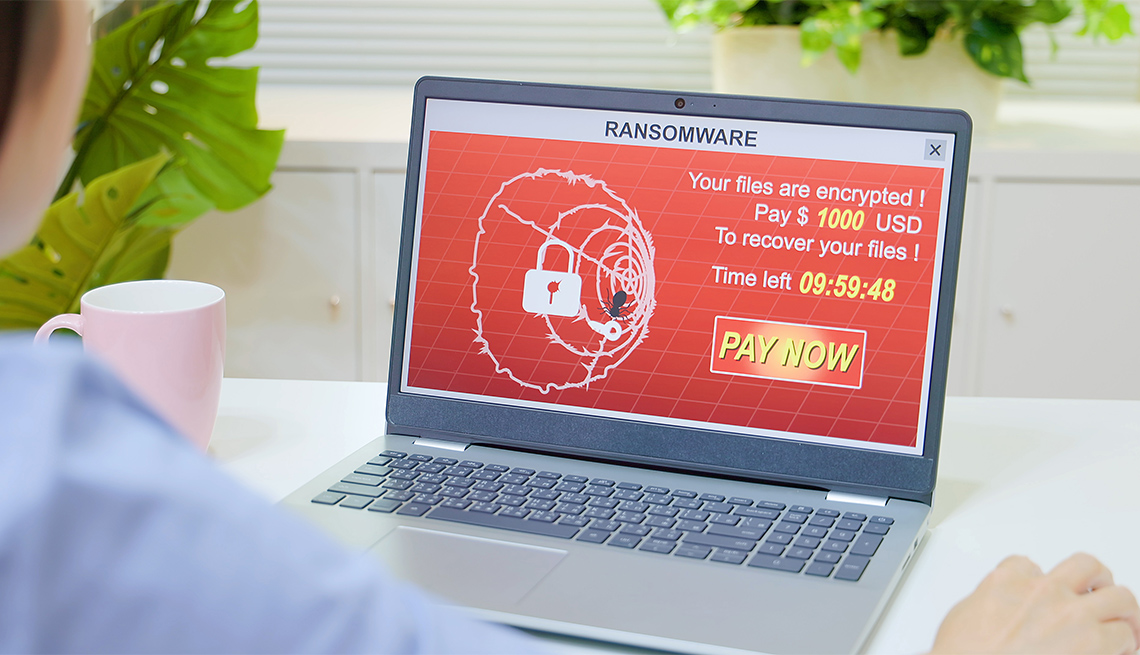
What to do if a ransomware attacks your computer
- Select a language for the TTS:
- UK English Female
- UK English Male
- US English Female
- US English Male
- Australian Female
- Australian Male
- Language selected: (auto detect) - EN
Play all audios:

5 TIPS TO PREVENT A RANSOMWARE ATTACK Cybersecurity software and common sense can help minimize the odds of a ransomware attack. Here's how to keep a ransomware attacker at bay. 1.
INSTALL CYBERSECURITY SOFTWARE ON ALL YOUR DEVICES and don't let it expire. _Consumer Reports_ lists seven free antivirus software options — three that it recommends — though most are
annual subscriptions. Companies in addition to Aura and McAfee that offer paid suites of software with additional protections and the ability to use it on multiple devices in the same
household include Avast, Kaspersky and Norton. (Norton offers a discount to AARP members.) 2. DELETE SUSPICIOUS EMAILS AND TEXT MESSAGES that claim to be from an organization — such as your
bank, credit card company, favorite shopping site, an internet service provider, the IRS or Microsoft — instead of clicking on a link that could take you to an authentic-looking but phony
site asking you to input personal or financial information. These "phishing” scams often include an urgent message asking you to immediately confirm these details. 3. NEVER CLICK ON
EMAIL ATTACHMENTS that you're not expecting. 4. KEEP APPS AND OPERATING SYSTEMS FULLY UPDATED, allowing them to automatically update when possible. Companies regularly patch their
software after vulnerabilities have been discovered and fixed. 5. BACK UP YOUR COMPUTER'S INTERNAL HARD drive regularly. You can choose your preferred backup method: an inexpensive
external hard disk drive; a USB storage device such as a memory stick or thumb drive; or an online cloud service like Dropbox, Google Drive, iCloud or OneDrive. Consider using a physical
backup you can store in your house and a cloud service. Backups protect your files from all sorts of problems in addition to ransomware attacks, including computer virus infections, fires,
floods, power surges or theft. "While the cloud is great, be sure to back up files to something you can unplug, such as a 64-gigabyte USB stick, which you can buy for $8,” says Grobman.
“Cybercriminals are very smart, but they can't violate the laws of physics and get into your drawer and get files off a USB stick or drive."
